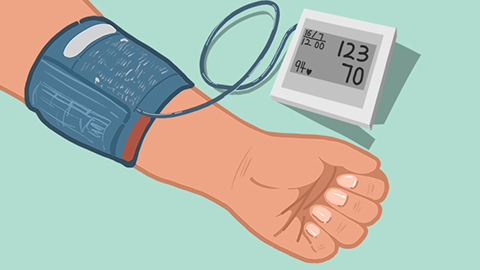What are some common tips for preventing high blood pressure?
Generally, common measures for preventing hypertension include a low-salt diet, regular exercise, weight control, smoking cessation and limited alcohol consumption, and maintaining a regular daily routine. Properly implementing these preventive strategies can reduce the risk of developing hypertension and promote cardiovascular health. Specific details are as follows:

1. Low-salt diet
Sodium in salt can cause water and sodium retention in the body, increasing blood volume and elevating blood pressure. It is important to reduce intake of pickled vegetables, cured meats, and processed foods. Cooking methods such as steaming, boiling, and stewing are recommended. Daily salt intake should be limited to less than 5 grams, and hidden sources of salt should also be avoided.
2. Regular exercise
Moderate physical activity improves blood vessel elasticity, promotes circulation, and reduces peripheral vascular resistance. It is recommended to engage in at least 150 minutes per week of moderate-intensity aerobic exercise, such as brisk walking, jogging, or swimming, with each session lasting more than 30 minutes. Prolonged sedentary behavior should be avoided.
3. Weight control
Obesity, especially abdominal obesity, increases the burden on the heart, leads to insulin resistance, and may trigger hypertension. Weight should be managed through balanced diet and regular exercise. Waist circumference should not exceed 90 cm for men and 85 cm for women, and rapid weight gain should be prevented.
4. Smoking cessation and limited alcohol consumption
Nicotine in tobacco causes blood vessel constriction and raises blood pressure. Long-term smoking also damages the vascular endothelium. Excessive alcohol consumption can increase heart rate and cause abnormal blood vessel dilation, raising the risk of hypertension. Complete smoking cessation is recommended, and alcohol should either be avoided or consumed only in small amounts as low-alcohol beverages.
5. Regular daily routine
Chronic sleep deprivation and irregular sleep patterns can disrupt neuroendocrine function and impair blood pressure regulation. It is essential to ensure 7–8 hours of sleep per day, avoid staying up late and overexertion, and maintain a consistent daily schedule, which helps stabilize blood pressure.
In daily life, it is also important to maintain a positive mood and avoid prolonged anxiety, stress, and other negative emotions. Blood pressure should be monitored regularly. Individuals with a family history of hypertension or symptoms such as dizziness and headache should seek medical evaluation promptly to enable early prevention and intervention.







